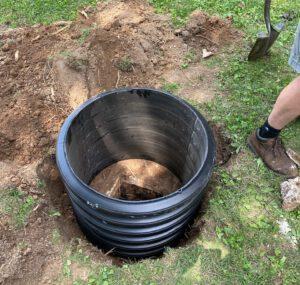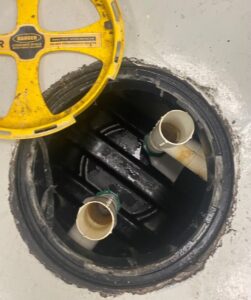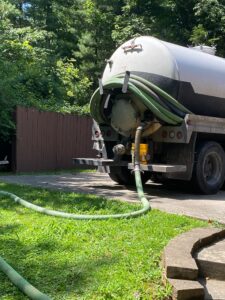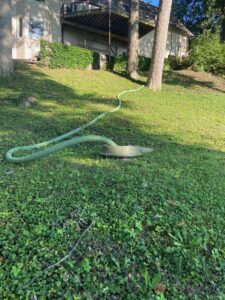
Essential Septic System Maintenance Tips for Indiana Homeowners
Keeping your septic system healthy safeguards your wallet, property value, and Indiana’s water resources. This practical guide breaks down everything you need to know in

Keeping your septic system healthy safeguards your wallet, property value, and Indiana’s water resources. This practical guide breaks down everything you need to know in

Septic systems are an essential part of many homes, particularly those not connected to municipal sewer systems. One crucial component of these systems is the

Understanding Unusual Septic Smells An unpleasant septic smell can be alarming and inconvenient for any homeowner. These odors are often a sign that something is

The Lifespan of a Septic System A septic system is a crucial component of many homes, handling the disposal and treatment of wastewater in an

Understanding Your Septic System Maintaining a healthy septic system is essential for every homeowner who relies on one. While it may seem straightforward, what you

When it comes to maintaining your septic system, one important consideration is whether or not to install risers on your septic tank lids. Risers are

Finding your septic tank lids is a crucial task for maintaining your septic system. Whether you’re planning a routine inspection, scheduling a pump-out, or just

Understanding the Importance of Regular Septic Inspections For homeowners in Indianapolis, maintaining a properly functioning septic system is essential for ensuring the smooth operation of

Running a successful commercial kitchen involves more than just crafting delicious dishes and providing excellent service. It also requires maintaining your kitchen’s infrastructure to ensure

Fat Trap Cleaning for Restaurants: Essential Maintenance for a Smooth-Running Kitchen In the bustling world of restaurant management, maintaining a clean and efficient kitchen is

Understanding Grease Trap Pumping: Essential Insights and Solutions Grease traps play a crucial role in maintaining the hygiene and functionality of commercial kitchens. They prevent

Sewage pumps play a crucial role in managing wastewater in both residential and commercial properties. Proper installation is essential to ensure the system functions effectively

In the bustling world of food service, maintaining a smoothly operating kitchen is crucial for business success. One essential aspect of kitchen maintenance is the

Maintaining a healthy septic system is essential for the functionality and longevity of your property’s wastewater management system. Regular septic maintenance helps prevent costly repairs,

Installing a septic system is a significant investment in the functionality and value of your property. Whether you’re building a new home or replacing an

Sewage tank cleaning is a vital aspect of property maintenance that is often overlooked but plays a crucial role in ensuring the health and safety

Indianapolis, the capital city of Indiana, is a vibrant hub of culture, commerce, and community. Nestled within this bustling metropolis are countless homes, businesses, and

Septic systems are the overlooked champions of residential and commercial wastewater management, quietly working underground to keep our properties clean and safe. In the bustling

Septic pump installations are a crucial aspect of maintaining a functional and efficient septic system. Whether you’re upgrading an existing system or installing a new

Grease traps are an essential component of commercial kitchens, designed to intercept fats, oils, and grease (FOG) before they enter the sewer system. However, over
About us
Owens Septic was established in 1992 and has been a trusted name in the septic tank pumping world. We provide services such as septic tank pumping, lift station pumping, septic inspections, pump installations, and riser installations. Please give us a call is you need any septic services in the South Central Indiana area.
Contact Info
1 (812) 597-1210 Paragon
1 (317) 210-5465 Fairland
1 (800) 506-4451
Business Hours
8:00-5:00 M-F, 9:00 - 5:00 Sat
Write to us now